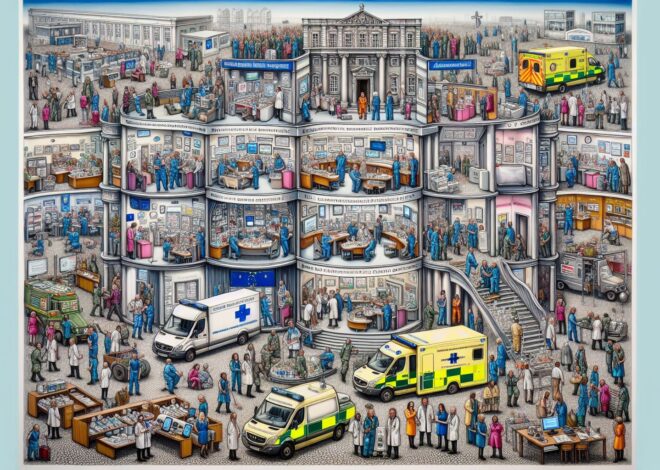
The Preparedness and Response of European Health Systems
In light of recent global health challenges, it is crucial for European health systems to be vigilant, prepared, and responsive. Health professionals, policymakers, and concerned citizens all have a role to play in ensuring the strength and resilience of our healthcare infrastructure. Let’s take a closer look at the importance of preparedness and response in European health systems.
Preparedness
Preparedness is the foundation of an effective healthcare system. It involves planning, training, and resource allocation to ensure that health services can respond swiftly and effectively in times of crisis. European health systems must be prepared for a range of potential threats, including infectious disease outbreaks, natural disasters, and other emergencies.
Health professionals play a key role in preparedness efforts. They must stay up-to-date on best practices, guidelines, and protocols for responding to different types of health emergencies. This includes regular training and simulation exercises to test and improve their readiness to handle various scenarios.
Policymakers also have a crucial role to play in ensuring that health systems are adequately prepared. They must allocate sufficient funding and resources to support preparedness efforts, including investing in critical infrastructure, medical supplies, personnel, and research.
Response
Response refers to the actions taken by health systems to address and mitigate the impact of a health emergency. A swift and effective response is essential to saving lives, containing the spread of disease, and maintaining public trust in the healthcare system.
Health professionals are on the front lines of the response effort. They must be ready to deploy their expertise and skills to provide care to those in need, as well as to communicate effectively with the public and other stakeholders. Collaboration and coordination among healthcare providers are key to a successful response.
Policymakers have a critical role in supporting and coordinating the response effort. They must make timely and evidence-based decisions to allocate resources, implement public health measures, and support healthcare facilities and workers. Clear communication with the public is essential to build trust and ensure compliance with public health measures.
How You Can Help
As a concerned citizen, there are several ways you can contribute to the preparedness and response of European health systems. Stay informed about public health guidelines and recommendations, and follow them to protect yourself and others. Support healthcare workers by following their instructions and showing gratitude for their dedication and hard work. Advocate for strong and resilient healthcare systems by engaging with policymakers and supporting investments in public health.
In conclusion, the preparedness and response of European health systems are critical to safeguarding public health and well-being. Health professionals, policymakers, and concerned citizens all have a role to play in ensuring that our healthcare systems are ready to face any challenge. By working together and supporting one another, we can strengthen our healthcare infrastructure and protect the health of our communities.



